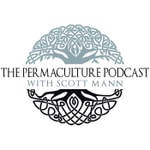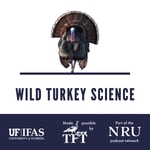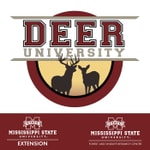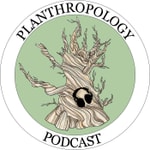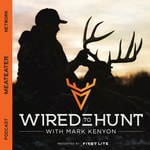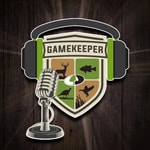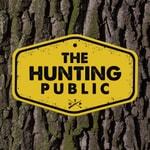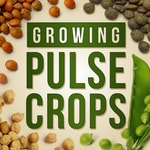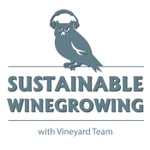Fire University – Details, episodes & analysis
Podcast details
Technical and general information from the podcast's RSS feed.
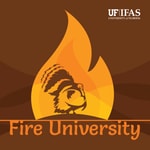
Fire University
Dr. Marcus Lashley & Dr. Carolina Baruzzi
Frequency: 1 episode/35d. Total Eps: 45

Recent rankings
Latest chart positions across Apple Podcasts and Spotify rankings.
Apple Podcasts
🇺🇸 USA - nature
27/03/2025#90🇺🇸 USA - nature
26/03/2025#63🇺🇸 USA - nature
25/03/2025#83🇺🇸 USA - nature
09/03/2025#100🇺🇸 USA - nature
01/03/2025#95🇨🇦 Canada - nature
08/02/2025#94🇨🇦 Canada - nature
07/02/2025#78🇨🇦 Canada - nature
06/02/2025#66🇨🇦 Canada - nature
05/02/2025#49🇨🇦 Canada - nature
04/02/2025#38
Spotify
No recent rankings available
Shared links between episodes and podcasts
Links found in episode descriptions and other podcasts that share them.
See all- https://www.instagram.com/ufdeerlab
364 shares
- https://www.instagram.com/drdisturbance
146 shares
- https://twitter.com/UFDEERLab
95 shares
- https://twitter.com/NR_University
83 shares
RSS feed quality and score
Technical evaluation of the podcast's RSS feed quality and structure.
See allScore global : 73%
Publication history
Monthly episode publishing history over the past years.
Building Trust and Collaboration in Fire Science | #42
Season 1 · Episode 42
mercredi 31 juillet 2024 • Duration 47:17
Dr. Molly Hunter joins us to discuss her work with the Joint Fire Science Program and the Fire Science Exchange Network, two organizations established to support fireland science research, provide science-based decisions to managers, and foster collaboration between scientists and practitioners. We also discuss the importance of measuring outcomes and the roles that trust and collaboration play in successful fire science management.
Resources:
Dr. Molly Hunter Academic Profile
Dr. Carolina Baruzzi wildlandmgmt, Academic Profile
Dr. Marcus Lashley DrDisturbance, Academic Profile
Have suggestions for future episodes? Send us your feedback! (here)
Check out our newest podcast, Wild Turkey Science!
Enroll now in our free, online fire course. Available to all.
This podcast is supported by listener donations - thank you for being a part of this effort.
For more information, follow UF DEER Lab on Instagram, Facebook, Twitter, YouTube.
Music by Dr. David Mason and Artlist.io
Produced and edited by Charlotte Nowak
Wetlands, herps, and fire…oh my! | #41
Season 1 · Episode 41
samedi 29 juin 2024 • Duration 46:37
Kim Sash, the Biological Monitoring Coordinator for Tall Timbers Research Station, joins us to shed light on how fire shapes reptilian and amphibian habitat, the challenges of applying fire regimes to wetland management, and how fire is used to help conserve these fascinating creatures.
Resources:
Kim Sash Contact, Tall Timbers
Dr. Carolina Baruzzi wildlandmgmt, Academic Profile
Dr. Marcus Lashley DrDisturbance, Academic Profile
Have suggestions for future episodes? Send us your feedback! (here)
Check out our newest podcast, Wild Turkey Science!
Enroll now in our free, online fire course. Available to all.
This podcast is supported by listener donations - thank you for being a part of this effort.
For more information, follow UF DEER Lab on Instagram, Facebook, Twitter, YouTube.
Music by Dr. David Mason and Artlist.io
Produced and edited by Charlotte Nowak
#32 | Bighorn sheep and fire heterogeneity, ft. Dr. Victoria Donovan
Season 1 · Episode 32
lundi 31 octobre 2022 • Duration 53:47
In this episode of Fire University, Marcus chats with Dr. Victoria Donovan, Assistant Professor of Forest Management at the University of Florida. Join as they discuss her past research understanding the roles of fire dynamics across plant and animal communities, as well as future research programs to continue understanding how fire shapes communities within spatio-temporal scales.
Dr. Marcus Lashley - @DrDisturbance - @ufdeerlab
Enroll now in our free wildland fire course. Available to all!
This podcast is supported by listener donations - thank you for being a part of this effort.
For more information, follow us on Instagram, Facebook, Twitter, YouTube!
#31 | A conversation with fire experts from all over the U.S.
Season 1 · Episode 31
mercredi 14 septembre 2022 • Duration 01:50:22
Earlier this year, we created an online Fire Training Course to teach and train participants on how to use prescribed fire to reach land management objectives. We had fire experts join a panel discussion to answer questions and share their knowledge on the fundamentals of implementing fire and connecting with fire communities. This episode is that panel discussion.
The Fire Training Course remains open, free, and available to all: https://bit.ly/RxFireTraining
This podcast is supported by listener donations - thank you for being a part of this effort.
For more information, follow us on Instagram, Facebook, Twitter, YouTube!
#30 | Rising tick populations….is it deer or fire? ft. Dr. Carolina Baruzzi
Season 1 · Episode 30
lundi 15 août 2022 • Duration 01:32:47
Whether it’s from fear of red meat allergy or Lyme’s disease, it’s safe to say that most people don’t hope to find a tick on them during routine checks. In this episode, Marcus introduces longtime friend and newly hired UF Assistant Professor of Wildlife Ecology and Management Dr. Carolina Baruzzi. Join as they break down their recent (unreleased) study assessing the effects that fire timing and deer have on tick populations.
Articles mentioned in this episode:
Reptile Host Associations of Ixodes scapularis in Florida and Implications for Borrelia spp. Ecology
Dr. Carolina Baruzzi - @OaksandGoats
Dr. Marcus Lashley - @DrDisturbance - @ufdeerlab
Enroll now in our free wildland fire course. Available to all!
This podcast is supported by listener donations - thank you for being a part of this effort.
For more information, follow us on Instagram, Facebook, Twitter, YouTube!
#29 | Management activities in the July heat, ft. Dr. Will Gulsby
Season 1 · Episode 29
mardi 5 juillet 2022 • Duration 53:59
The species you hunt need habitat year round. Now is a key time to evaluate your habitat management outcomes and plan for upcoming applications. Join Marcus as he chats with old friend and colleague Dr. Will Gulsby, Associate professor at Auburn University, as they discuss what you can do during the July heat.
Dr. Will Gulsby - @dr_will_gulsby - Auburn Deer Lab
Dr. Marcus Lashley - @DrDisturbance - @ufdeerlab
Enroll now in our free wildland fire course. Available to all!
This podcast is supported by listener donations - thank you for being a part of this effort.
For more information, follow us on Instagram, Facebook, Twitter, YouTube!
#28 | Fire creates unique habitat features, ft. Dr. Chitwood & Dr. Elmore
Season 1 · Episode 28
mardi 14 juin 2022 • Duration 01:03:26
We talk a lot about the aspects of habitat that wildlife use the most…but what about the unique habitat features wildlife use infrequently but are critical to their survival? For this episode, Marcus sits down with good colleagues and friends Dr. Colter Chitwood and Dr. Dwayne Elmore of Oklahoma State University to discuss this concept with gamebirds, box turtles, and more.
Dr. Colter Chitwood - colter.chitwood@okstate.edu - Chitwood Lab
Dr. Dwayne Elmore - dwayne.elmore@okstate.edu
Dr. Marcus Lashley - @DrDisturbance - @ufdeerlab
Papers discussed in this episode:
- Chiwood et al. 2017: Macroarthropod response to time-since-fire in the longleaf pine ecosystem
- Harris et al. 2020: Direct and Indirect Effects of Fire on Eastern Box Turtles
- Harris et al. 2020: Spatial Ecology and Resource Selection of Eastern Box Turtles
- Mason & Lashley 2021: Spatial scale in prescribed fire regimes: an understudied aspect in conservation with examples from the southeastern United States
- Robertson et al. 2021: Fire management alters the thermal landscape and provides multi-scale thermal options for a terrestrial turtle facing a changing climate
Enroll now in our free wildland fire course, opening June 20, 2022.
This podcast is supported by listener donations - thank you for being a part of this effort.
For more information, follow us on Instagram, Facebook, Twitter, YouTube!
#27 | Fire as a tool to increase nutrient availability for fawns and lactating does, ft. Dr. Bronson Strickland
Season 1 · Episode 27
mardi 31 mai 2022 • Duration 01:08:15
Providing lactating does and their fawns with high-quality forage and cover is integral for both their nutrition and survival. In the southeast, fire is one of the leading management tools used to increase the quality of white-tailed deer habitat. For this episode, Marcus sits down with deer expert Dr. Bronson Strickland of the MSU Deer Lab to discuss details on what factors play a role in creating good-quality habitat for lactating does and their fawns.
Please help us justify this effort by taking our quick survey: https://ufl.qualtrics.com/jfe/form/SV_9ZdpHVy5wwkAt4q
This podcast is supported by donations from our listeners. If you’d like to help, click here to donate today!
Dr. Marcus Lashley | @DrDisturbance | @ufdeerlab
Dr. Bronson Strickland | @MSUDeerLab
For more information, follow us on Instagram, Facebook, Twitter, YouTube!
#26 |The thumbnail history of fire on the planet, ft. Dr. Stephen Pyne
Season 1 · Episode 26
mardi 10 mai 2022 • Duration 49:14
In today’s episode, @DrDisturbance chats with Dr. Stephen Pyne, author and professor at Arizona State University who specializes in fire history. Come travel back in time as he walks us through the evolution of fire on the North American landscape, human relationship with fire in the environment, and problems we face now and in the future.
Dr. Stephen Pyne : stephen.pyne@asu.edu | Website | Publications
Please help us justify this effort by taking our quick survey: https://ufl.qualtrics.com/jfe/form/SV_9ZdpHVy5wwkAt4q
This podcast is supported by donations from our listeners. If you’d like to help, click here to donate today!
For more information, follow us on Instagram, Facebook, Twitter, YouTube
#25 | Effects of fire across the US landscape, ft. Dr. Katie Greenberg
Season 1 · Episode 25
mardi 12 avril 2022 • Duration 01:02:53
Katie H. Greenberg | cathryn.greenberg@usda.gov
Want to help fund ongoing research at the UF DEER Lab? Click here to donate today!
For more information, follow us on Instagram, Facebook, Twitter, YouTube
